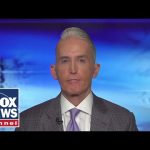Pope Francis, the 266th leader of the Roman Catholic Church, has died at the age of 88 following a prolonged and serious respiratory crisis that ultimately led to a fatal stroke and irreversible cardiocirculatory collapse. The Vatican confirmed his passing on April 21, 2025, just a day after Easter, marking the end of a historic 12-year papacy that saw the first Latin American and Jesuit ascend to the Chair of St. Peter. His final months were marked by repeated hospitalizations for respiratory complications, including bilateral pneumonia, bronchiectasis, and asthmatic bronchitis, which left him in critical condition and requiring intensive medical intervention. Despite these challenges, Pope Francis made public appearances during Holy Week and Easter, offering hope to the faithful until his sudden decline and death in his Vatican residence.
The life and papacy of Pope Francis, born Jorge Mario Bergoglio in Buenos Aires in 1936, were defined by humility, simplicity, and a profound commitment to the marginalized. He famously shunned the trappings of papal luxury, opting instead for modest accommodations and direct engagement with ordinary people. His hands-on approach and personal warmth resonated with millions, earning him a reputation as a “pope of the people.” Throughout his tenure, Francis emphasized mercy, inclusivity, and social justice, often challenging both the Church and the world to care for the poor and the environment.
However, Francis’s progressive agenda was not without controversy. While he was lauded by many for his outreach to marginalized groups and his calls for climate action, his papacy also drew criticism from traditionalists who saw his reforms as a departure from established doctrine. His willingness to entertain dialogue on issues such as LGBTQ inclusion, communion for divorced Catholics, and greater roles for women in Church leadership sparked internal debates and, at times, deep divisions within the global Catholic community. Some critics argue that his focus on social issues and global activism came at the expense of doctrinal clarity and the Church’s traditional moral teachings.
In his final years, Pope Francis faced mounting health challenges, which fueled speculation about the future of the papacy and the direction of the Church. Nonetheless, he remained committed to his mission, continuing to inspire dialogue and reform even as his physical strength waned. His death now leaves the Church at a crossroads, with the College of Cardinals set to convene and elect a new pope—a decision that will shape the future of Catholicism for years to come.
As the world mourns the passing of Pope Francis, his legacy will be debated for generations. Supporters will remember him as a compassionate reformer who sought to make the Church more inclusive and responsive to modern challenges. Detractors will point to the confusion and division that sometimes accompanied his leadership. Regardless of perspective, his impact on the Catholic Church and the broader world is undeniable. The coming days will see Catholics around the globe unite in prayer and reflection, seeking guidance and strength as the Church enters a new era.




